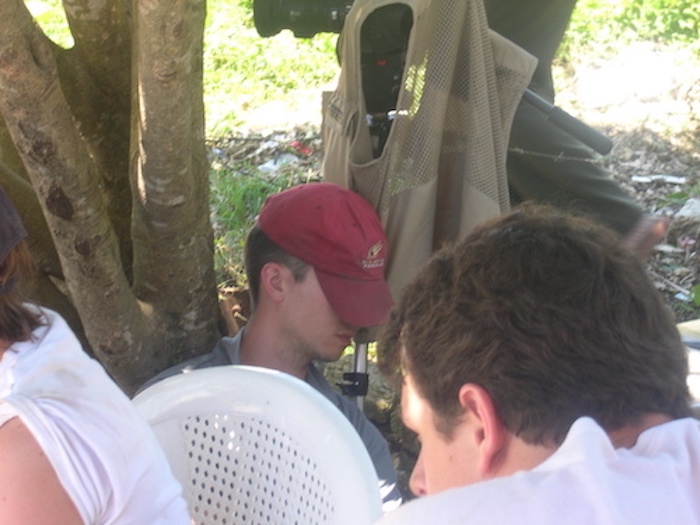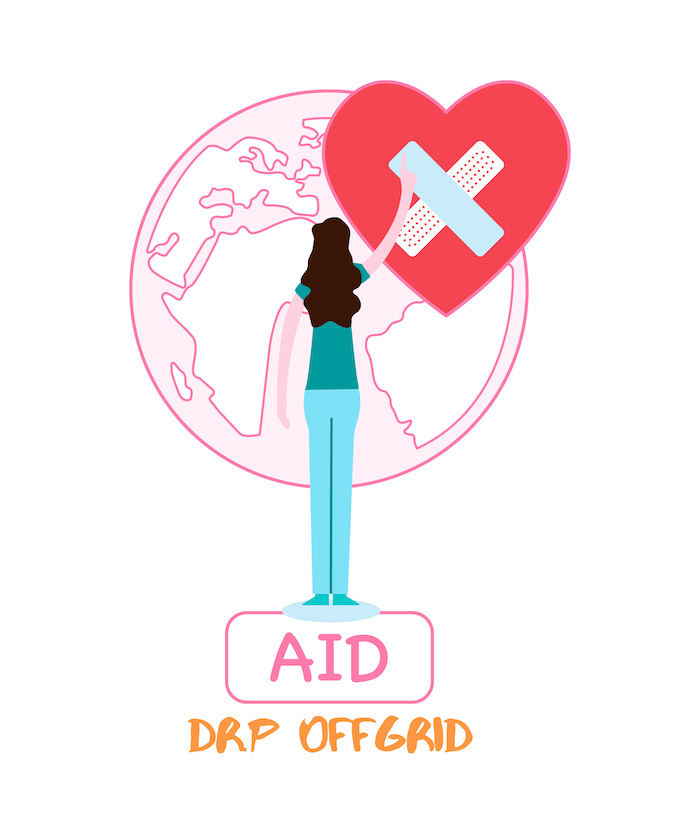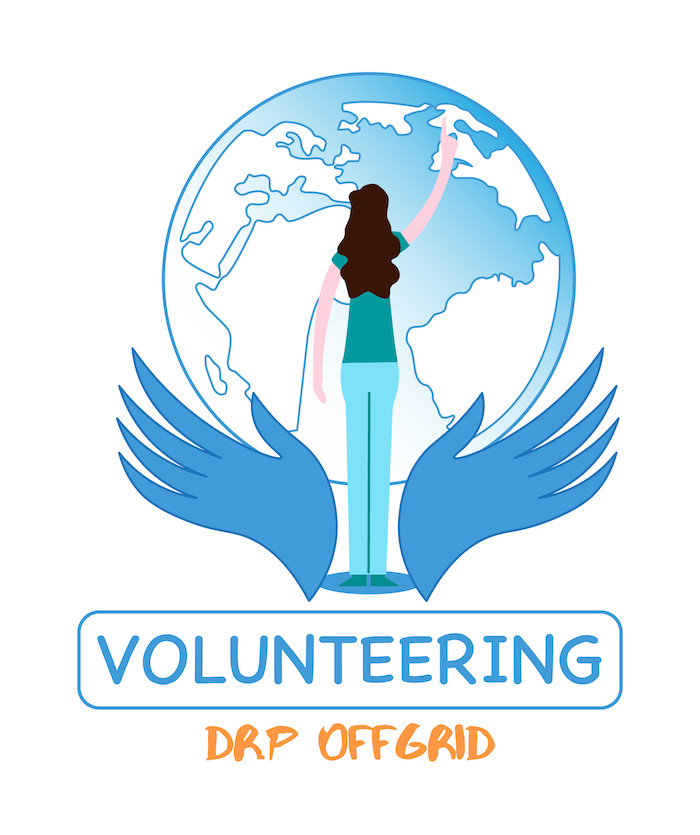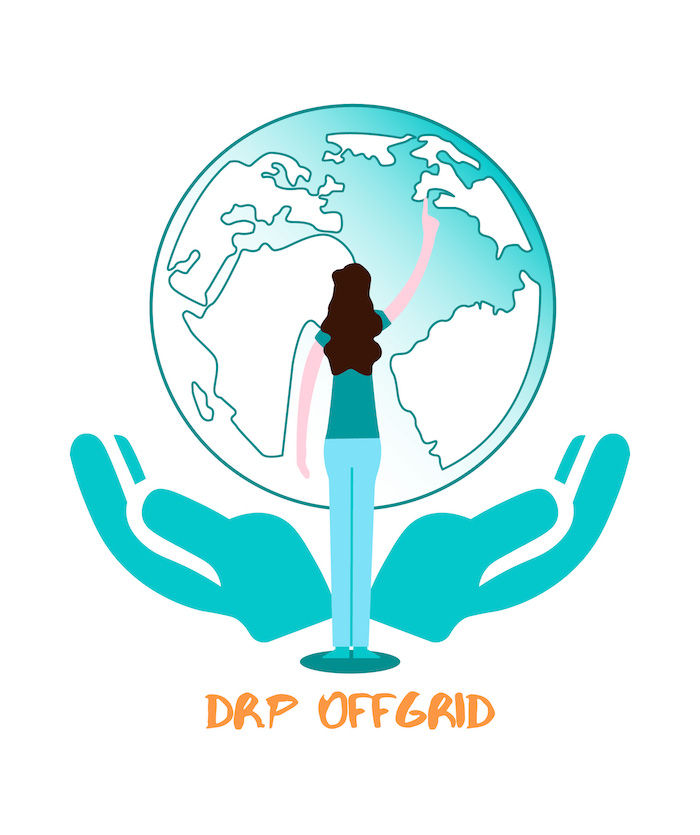Global Volunteer Education is the teaching and learning of how to do volunteer work at an international level and or in a different country. Education at this level means learning different types of skills such as cultural education and reflection methodologies to consider the experience educative.

The term volunteering means that someone (or a group) decides strictly willfully to benefit a cause via a group, a person, and or an organization without any monetary compensation. Volunteering can be a one-time event or a long-term commitment and be formal or informal. The key point is that it is optional, by choice, to assist a need with no financial gain at an international level -thus the global definition.

Here on the picture on the left is “Elba,” a member of an NGO that was trained and prepared to assist and help this particular community. Without any preparation, the volunteering experience can be detrimental to the volunteer and or to the person/s receiving the assistance. As always, knowledge is power on any occasion.
It is proven by research that volunteers who had preparation, facilitation, and instruction on their volunteer work are more productive. motivated, and also have a bigger sense of well-being. Clear objectives and goals are key in evaluating and guiding the success of any volunteer task.

Volunteering is not an easy task. Many volunteer places are short-staffed, underpaid, and with few resources. Although it is a great opportunity to discover skills and build strengths it can also be frustrating at times. Determination and flexibility are the only ways to succeed in a volunteer venture.

Componentes of Global Volunteer Education
- Orientation with what who when where how and when
- Culture Education
- Framing the Organization
- Framing the Project
- Goals and Objectives
- Task preparation and skill building/Training
- Provide a facilitator for the volunteer/s
Volunteering vs Service Vs Service Learning
Remember that the definitions view of the terminology on this site aims to represent the global view. Unfortunately, most definitions have been taken and or extrapolated from one nation to the rest which is incredibly hegemonic and discriminatory. It is crucial to consider that the laws in one country do not apply to the rest in international law unless there is an international agreement.
While volunteering and service are similar in their core value, offering something to assist someone, it is important to understand the difference between the two.
Volunteering is “offering” something to someone or an organization that has a need.
When pure sincerity forms within, it is outwardly realized in other people’s hearts.”
― Lao Tzu

The term volunteering means that someone (or a group) decides strictly willfully to benefit a cause via a group, a person, and or an organization without any monetary compensation. Volunteering can be a one-time event or a long-term commitment and be formal or informal. The key point is that it is optional, by choice, to assist a need with no financial gain at an international level -thus the global definition. Here are some examples:
- Helping in a soup kitchen/meal center for people in need
- Participating in a beach cleanup
- Foster an animal

Service is work done for the community by one person or a group, it is without monetary compensation. Service is done to benefit the community, to serve a country, a specific group of people, and for other reasons. Service is not always done voluntarily and here are some examples:
- community service at a school as part of the school curriculum to graduate
- as a form of punishment for committing an offense someone has to do 40 hours a week of cleaning at a hospital
- compulsory military service such as in South Korea, Egypt, and Mexico between many other nations
Service Learning

Service Learning is the type of service where the experience is key in the learning process. The service is done by assisting a community’s need and the learning of a subject, applying academic knowledge, is done through assisting that need. Here are some examples:
- Teaching English while taking an English course
- Building a community center and taking a business course using that particular community as a case study
- Anthropology students helping with excavations in Egyptian sites
Dr. P’s Personal Tip
Volunteering needs to be genuine and authentic without having monetary compensation. Volunteering requires a person to focus on others (not a selfie type of activity) and to be slow at judging others. Real volunteering should not have a hidden agenda. Your primary reason should be to want to help others. Some people might volunteer because of reasons other than giving such as; it looks good on your resume, people will like me if I volunteer, etc, etc. While there is nothing wrong with wanting to document your experience, being genuine while wanting to help will ease any process common to volunteering such as frustration for not being able to change the landscape, anger at the situation, etc, etc. Studies have shown that there is NO correlation between a person volunteering and finding a job, this is then more of a reason why not to be so practical when volunteering.
Volunteering can be short-term or long term and the majority of volunteering is for a one-time deal or short-term (one day to a week). There is no monetary compensation for volunteering and there should be no hidden agenda ex: volunteering because it looks good on a resume.

Aboriginal Community
TIPS for any type of Volunteer experience
- Patience. There is no volunteer experience that does not require this endurance trait. You might find that some places are disorganized, mostly due to a lack of resources, training, and or leadership.
- Do not fear frustration. We all get to some degree frustrated when we are not able to change or understand something.
- Be prepared. If you are not ready for this experience, the whole “giving” process can be stressful.
- Research the volunteer site and project and talk if possible to other folks who volunteered in your chosen spot. You might get some important insights that will allow you to know
- DR. P’s number one TIP. Research and find who you contact, and or hire, to set you up on the volunteer or service experience. You will be surprised to see how many third-party providers are making a huge cut for the post where you will be working. While it takes time and money to set up all logistics and some of these are much more complicated to set up in some regions of the world, it should not be extremely costly. Also, you do not want to hire a company/organization that hires another one and another one to do the placement…too many hands on one plate diminish the direct communication making the process more “iffy”!
- BE AWARE that if you contact the organization directly, they might not have the expertise and/or the time to do the logistics for you such as housing, transportation, and all the care you might need for the experience.





